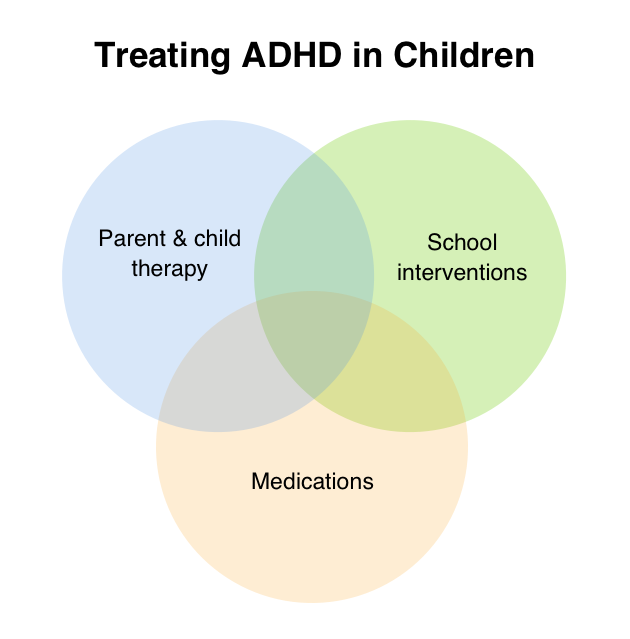Your Guide to Discovering the Right ADHD Treatment for Enduring Results
Navigating the intricacies of ADHD therapy needs a nuanced understanding of both the condition and the myriad choices readily available for effective monitoring. It is necessary to acknowledge that what works for one person may not always produce the exact same outcomes for an additional.
Understanding ADHD and Its Impact

In adults, ADHD can result in challenges in work environment settings, impacting efficiency, time administration, and interpersonal relationships. Usually, undiagnosed or improperly managed ADHD can add to co-occurring mental health and wellness issues, such as anxiety and clinical depression, additional making complex an individual's total health.
The social perception of ADHD can differ, causing stigma and misconception, which might impede people from looking for help. As awareness expands, it is vital to cultivate an atmosphere that promotes understanding and assistance for those influenced by ADHD, highlighting the requirement for accurate medical diagnosis and tailored methods to reduce its influence on everyday life.
Introduction of Treatment Alternatives
A detailed technique to dealing with ADHD incorporates a variety of options tailored to the person's special demands. These choices can extensively be categorized into behavior treatments, psychoeducation, and way of life alterations, along with pharmacological therapies that may be explored later on.
Behavioral interventions, such as cognitive-behavioral therapy (CBT), focus on changing particular behaviors and creating coping strategies to take care of symptoms successfully. Psychoeducation plays a critical duty in empowering both people and their families by supplying details concerning ADHD, its obstacles, and efficient approaches for support.
Way of living alterations can significantly influence ADHD administration. Normal physical activity, a well balanced diet, and sufficient rest add to overall well-being and sign control. Mindfulness techniques and relaxation methods can likewise boost focus and minimize impulsivity.
Support system and family therapy can foster a feeling of neighborhood and understanding, assisting individuals feel less isolated in their experiences. Each therapy option should be considered combined with the person's preferences and scenarios, making sure a holistic strategy that promotes long-term success. Eventually, the objective is to produce a personalized treatment plan that resolves the certain challenges related to ADHD while enhancing total lifestyle.
Medicine: Pros and Cons
Medicine plays a pivotal duty in the therapy of ADHD, with numerous choices available that can significantly ease symptoms for many individuals. Energizers, such as methylphenidate and mild antidepressants amphetamines, are frequently prescribed and have shown performance in enhancing emphasis, reducing impulsivity, and boosting total actions. These medications function by increasing dopamine and norepinephrine degrees in the mind, which are typically dysregulated in those with ADHD.
Nonetheless, using drug is not without its difficulties. Some people may experience negative effects, including insomnia, reduced cravings, or raised stress and anxiety. Additionally, locating the right dose can be a trial-and-error procedure, needing close surveillance by healthcare professionals. Additionally, not all clients respond to stimulant medications, leading some to discover non-stimulant alternatives, which may have a postponed onset of action or various side impacts.
It is essential for people and their family members to evaluate these benefits and drawbacks meticulously. Stabilizing the benefits of symptom monitoring versus prospective adverse effects is vital for achieving ideal treatment outcomes. Collaboration with doctor can promote enlightened choices, ensuring that medication belongs to a comprehensive ADHD monitoring strategy.
Behavior Modification Methods
:max_bytes(150000):strip_icc()/adhd-treatment-4157278_FINAL-848b0cfc4d0b42a0b66c3d2ca894e9dd.png)
One typically used approach is Cognitive Behavior modification (CBT), which assists people determine and transform adverse idea patterns that contribute to ADHD-related obstacles. Therapist for ADHD. With CBT, clients learn to establish realistic goals, take care of time effectively, and establish organizational systems
One more reliable technique is Parent Management Training (PMT), which informs moms and dads on how to strengthen favorable habits and decrease negative ones via consistent technique and communication approaches. This approach click to find out more fosters a supportive home setting that encourages behavior renovations.
Social skills training is also essential, assisting people with ADHD browse social communications better. Role-playing and modeling proper habits can enhance social competence and minimize anxiety in social scenarios.
Way Of Living Modifications for Better Management
How can lifestyle adjustments considerably boost the management of ADHD signs and symptoms? Executing critical lifestyle adjustments can lead to significant renovations in emphasis, organization, and psychological policy for people with ADHD.
To start with, developing a structured everyday routine assists in developing predictability, which can ease sensations of overwhelm. Regular routines for meals, study, and sleep can boost everyday functioning.
Incorporating normal physical activity is likewise crucial, as workout has been shown to boost dopamine levels, boosting interest and motivation (Therapist for ADHD). Aiming for at the very least 30 mins of moderate workout most days can be advantageous
Nourishment plays a critical function as well. A well balanced diet abundant in omega-3 fatty acids, entire grains, and healthy protein can sustain cognitive function. Restricting refined sugars and high levels of caffeine may reduce signs and symptoms, as these can result in energy accidents and irritability.
Final Thought
To conclude, finding the appropriate ADHD treatment More about the author necessitates a diverse approach that takes into consideration private needs and preferences. A combination of medicine, behavioral therapy, and lifestyle alterations can considerably enhance symptom management and general well-being. Taking part in psychoeducation and establishing organized routines further supports effective treatment approaches. Partnership with health care experts and open communication with assistance networks are necessary elements in navigating the complexities of ADHD management, eventually resulting in lasting results and improved lifestyle.